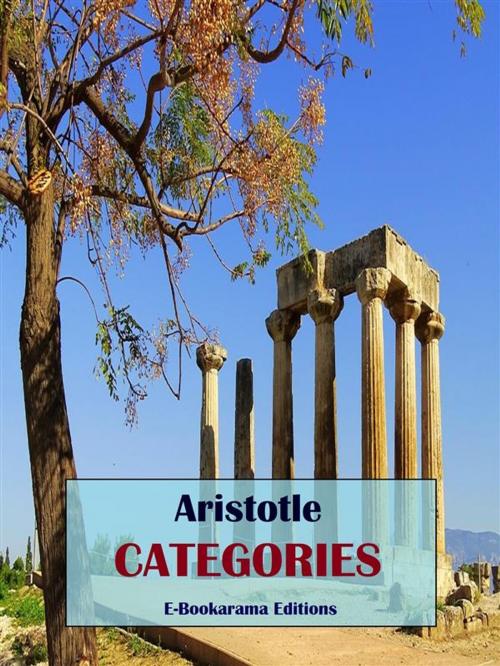| Author: | Aristotle | ISBN: | 9788834169858 |
| Publisher: | E-BOOKARAMA | Publication: | August 13, 2019 |
| Imprint: | Language: | English |
| Author: | Aristotle |
| ISBN: | 9788834169858 |
| Publisher: | E-BOOKARAMA |
| Publication: | August 13, 2019 |
| Imprint: | |
| Language: | English |
Aristotle's "Categories" is a book about how to categorise things in the world and a singularly important work of philosophy.
It not only presents the backbone of Aristotle's own philosophical theorising, but has exerted an unparalleled influence on the systems of many of the greatest philosophers in the western tradition. The set of doctrines in the "Categories" (categorialism) provides the framework of inquiry for a wide variety of Aristotle's philosophical investigations, ranging from his discussions of time and change in the "Physics", to the science of being qua being in the "Metaphysics", and even extending to his rejection of Platonic ethics in the "Nicomachean Ethics". Looking beyond his own works, Aristotle's categorialism has engaged the attention of such diverse philosophers as Plotinus, Porphyry, Aquinas, Descartes, Spinoza, Leibniz, Locke, Berkeley, Hume, Kant, Hegel, Brentano or Heidegger..., who have variously embraced, defended, modified or rejected its central contentions. All, in their different ways, have thought it necessary to come to terms with features of Aristotle's categorial scheme.
Aristotle's "Categories" is a book about how to categorise things in the world and a singularly important work of philosophy.
It not only presents the backbone of Aristotle's own philosophical theorising, but has exerted an unparalleled influence on the systems of many of the greatest philosophers in the western tradition. The set of doctrines in the "Categories" (categorialism) provides the framework of inquiry for a wide variety of Aristotle's philosophical investigations, ranging from his discussions of time and change in the "Physics", to the science of being qua being in the "Metaphysics", and even extending to his rejection of Platonic ethics in the "Nicomachean Ethics". Looking beyond his own works, Aristotle's categorialism has engaged the attention of such diverse philosophers as Plotinus, Porphyry, Aquinas, Descartes, Spinoza, Leibniz, Locke, Berkeley, Hume, Kant, Hegel, Brentano or Heidegger..., who have variously embraced, defended, modified or rejected its central contentions. All, in their different ways, have thought it necessary to come to terms with features of Aristotle's categorial scheme.















